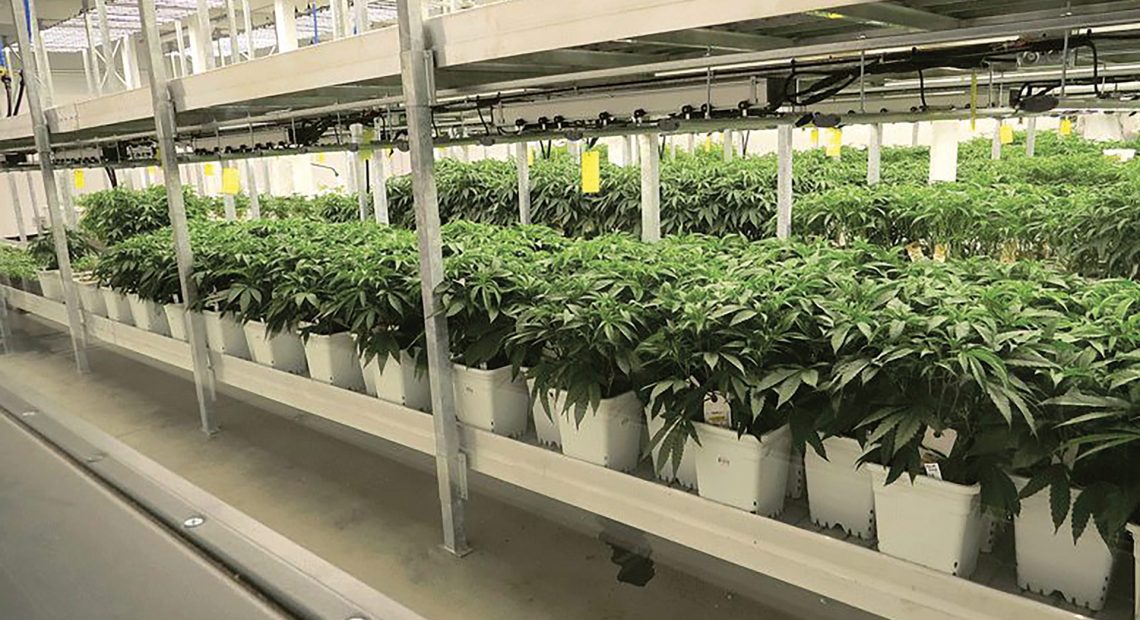Beyond ‘If You Build It, They Will Come’
By Meg Sanders
The local cannabis industry is overflowing with weed.
The Massachusetts Cannabis Control Commission’s open data platform reports 95 cultivators were operational and licensed as of Dec. 8, 2022. Hot on those heels, another 180 provisional licensees are seeking approval that would bring the state up to somewhere around 3.6 million to 4.98 million square feet of canopy for flower cultivation within the Bay State cannabis market’s roughly 250 cannabis stores.
If your operating and business plan is based on an outlook written for investors in the previous presidential administration, or during the halcyon days of the great green rush of the past, it’s time to face the truth: Massachusetts is well beyond the point of “if you build it, they will come.”
So those Massachusetts cannabis businesses still in the queue or just getting open need to revisit their market overviews for investors and operators. They need to do so today. Not tomorrow, not if a market event happens — right now.
“Those Massachusetts cannabis businesses still in the queue or just getting open need to revisit their market overviews for investors and operators. They need to do so today. Not tomorrow, not if a market event happens — right now.”
Meg Sanders
Take a very hard look at what needs to be rethought, or what needs to be immediately addressed, in regard to budgeting, SOPs, and overall market impact strategies for launch — and for long-term survival. Roughly 37% of all cannabis operators in the U.S. are not profitable, and too many businesses are unaware they are launching only to be licensed to lose money and fail.
For Massachusetts, the danger zone is already here.
New Markets = New Consumers
As more retailers and brands emerge online, operators just now getting their operational licenses are typically doing so using plans they wrote when originally fundraising months or years back, often without taking into account how business plans and projections need to be tweaked, updated, or overhauled in the realities of the Massachusetts cannabis industry in 2023.
Canna Provisions is the ninth-largest independent cannabis company in the Commonwealth, has won multiple ‘Best Dispensary’ awards for selection and customer service, and has been named one of the best companies to work for in the nationwide industry. And even we are reworking our plans.
Surviving the current market constriction and correction from the imbalance of supply and demand — something that has happened in other markets that came online, though it arrived faster here in Massachusetts — is a challenge of smart maneuvering and business forecasting. Ultimately, those businesses with clear eyes, that are as responsible with every dollar moving in and out of the business, will be the ones that make it out. That’s also why, to me, 2023 isn’t all doom and gloom, despite the headlines.
Price compression has been on the industry’s collective mind for the past year, which makes it all the more important to create new strategies at the retail level. Differentiation for brands will come down to matters of quality of product, a consistent and predictable retail experience, and the education level of the consumer.
What we know for sure, as seen from my experience in cannabis stretching back to the dawn of the legalized market in Colorado more than a decade ago, is that, when new markets flanking legalized states come online, it helps everyone in the existing legal retail market. But ultimately, the ones that really come out ahead are those with a key differentiating advantage and a realistic, thoughtful approach to the business. Many small first-time operators do not have the forward-looking business modeling abilities needed in the current market, especially when their average day-to-day will be spent just trying to stay afloat.
Smart Business Savvy Is the Key to Success
As experience has shown, the sky doesn’t fall in an existing market when competition is tight and the supply is in surplus, but businesses do need to be responsible. For those that need a reminder, thanks to IRS Code 280E, the effective tax rate for cannabis companies is roughly 70%. Meanwhile, cannabis companies cannot deduct normal business expenditures. Our three biggest line items, in order, are inventory, payroll, and taxes (the statewide total collected for 2022 was roughly $284 million, to paint the picture).
“Surviving the current market constriction and correction from the imbalance of supply and demand — something that has happened in other markets that came online, though it arrived faster here in Massachusetts — is a challenge of smart maneuvering and business forecasting.”
In some instances, the towns themselves are waking up to the runaway nature of the market glut. Last month, Northampton city councilors set a new limit on local cannabis dispensaries allowed to open (capped at 12 retail locations now) for a municipality noted for having the most licensed dispensaries in the state.
Even with our collective experience in retail cannabis operations and strategy, it’s still a massive challenge to make it work with so many ways our hands are tied or restricted compared to traditional industries. When the revenue numbers generated by legal cannabis in the state seem to defy the crunch-time feeling of the market, all businesses and consumers need to remember the lion’s share goes directly to the government instead of back to the business. That’s another reason why it’s important to be more careful than ever about how and where dollars are spent, and how we are utilizing the investor capital we raise for our ongoing expansion and scaling plans.
Best by Definition
Competition is already at a fever pitch in the state, and in cannabis, getting there first sometimes just makes you best by definition in the market’s eyes. At the retail level, look at any new cannabis state — say, New York — and what happens when the first stores open: lines around the block and product (or what variety there is at first) flying off shelves at steep prices that make investors smile and consumers wince. But when the market becomes more savvy and educated about the products and value system of a brand-new industry, first is no longer best.
As challenging as this time and sector is, it’s as important for the turbulent tenor of the day to subside as much as it is important for it to simply succeed at a functional level. In fact, it must succeed for the greater industry to thrive.
There is no shortage of stories about widespread layoffs and restructuring for asset consolidation on a large scale with bigger companies, primarily multi-state operators (MSOs). But in comparison to the trials of new, very small operators that found it a matter of survival just to get to the doors-open phase, MSOs have it much easier. They can bleed money in a way small independent shops cannot. If they have operational experience already, they may still not have the ability to see the forest through the trees if they are not actively responding to the business climate of an ever-changing, statewide industry.
You will need more money — from either increased sales or investor dollars for market expansion. There will continually be massive restrictive aspects to operating as long as no new banking reform measures or full-scale legalization measures are enacted. So plan on enduring such aspects as much as you should plan to be noble and focus on what is a differentiating aspect of your business.
And don’t plan on having a future in the business until you get your business plan reflective of the industry we have versus the one we want. For those new or inexperienced operators that don’t get those lessons under their belt, theirs will be a back aching for the lash of “don’t say you weren’t warned.”
Meg Sanders is the CEO of Canna Provisions, which operates cannabis dispensaries in Holyoke and Lee.







